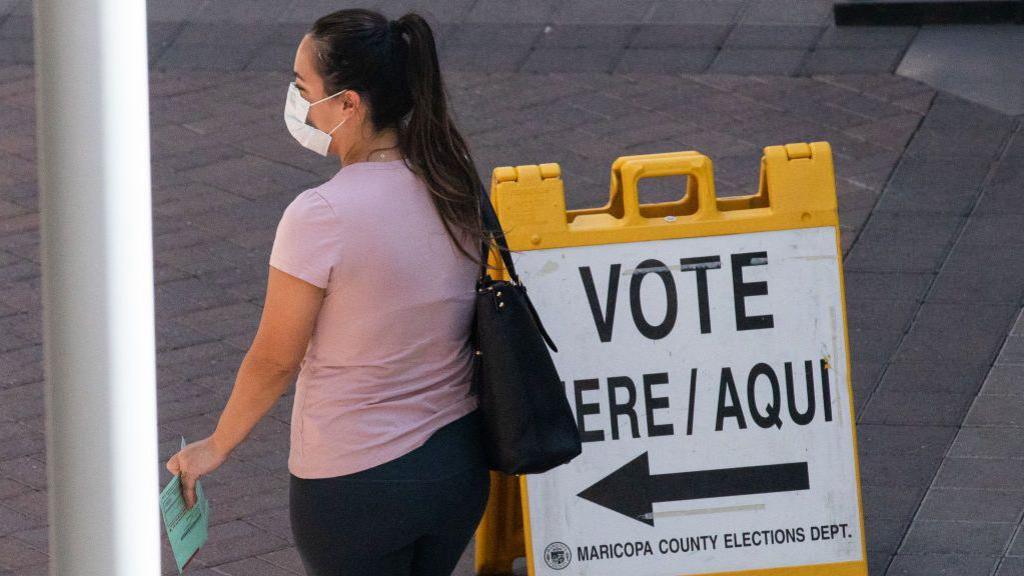Supreme Court limits Arizona voting without citizenship proof

- Published
The US Supreme Court has granted a Republican request to partially reinstate an Arizona law demanding proof of American citizenship for voter registration.
In a 5-4 ruling, justices reinstated part of a 2022 law that rejected such forms if the voter did not provide proof of citizenship.
The law's full revival would have excluded more than 41,000 people from voting in November's election between Kamala Harris and Donald Trump.
The administration of President Joe Biden, who won Arizona in 2020 by just over 10,000 votes, had sued to stop the law.
Thursday’s ruling revived the part of the Arizona law that requires residents to provide proof of American citizenship to register as voters in the state.
It rejected, however, the law's provision to mandate that voters who used a separate federal registration form should submit such documentation.
Michael Whatley, chairman of the RNC, said the ruling was a "major victory for election integrity. American elections must be decided by American citizens".
However, the outcome is expected to have little impact on the looming general election as it does not affect any Arizonan already registered to vote, according to the Arizona Republic newspaper, external.
The law was enacted in March 2022 by Doug Ducey, the then-Republican governor, to balance what he said was voting accessibility with election security.
The Biden administration sued to revoke it in July of the same year, arguing that it was superseded by a 1993 federal law called the National Voter Registration Act.
Advocacy groups also petitioned against the Arizona measure.
Last September, Phoenix-based US District Judge Susan Bolton ruled in favour of the challenge, and blocked requirements for documentary proof at both state and national levels.
A three-judge panel on the San Francisco-based 9th US Circuit Court of Appeals declined to halt Judge Bolton's ruling.
That prompted an emergency Supreme Court filing from the Republican National Committee and Arizona Republicans.
On Thursday five conservative justices granted the Republican request. A sixth conservative, Amy Coney Barrett, joined with the three liberal justices in opposing it.
Arizona, which is expected to be one of the most competitive states in the coming election, has been a flashpoint in the battle over voting laws.
It is the only state that requires voters to provide a birth certificate, a passport or one of a handful of other documents proving their citizenship.
A closely watched Republican review of the 2020 presidential election found no evidence that irregularities marred Mr Biden's narrow victory over Trump.